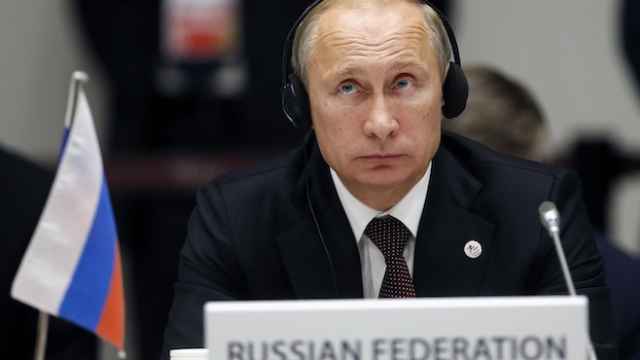As Russia's economy founders, an increasing number of Russian women are taking their financial future by the horns with the decision to launch their own small businesses.
This is not an easy choice in a country where entrepreneurship is fettered by red tape, corruption and the high cost of lending, and in which women struggle to balance work with adherence to conservative social values.
But with Russia's economy close to stagnation, many have no other option, participants in Moscow's recent Women in Business conference said.
"In any economic downturn there are entrepreneurs of necessity … a lot of women are entering the workforce or starting their businesses because they need to," Eric Hansen, vice president for the Center for Entrepreneurship, which organized the conference, told The Moscow Times.
Irina Muzykina, a partner in a law firm, decided to co-found a real estate business in Germany after witnessing the impact of the economic slowdown on her field. She told The Moscow Times that she hopes conducting more business abroad will shield her from the effects of sanctions on Russia.
In founding a business, Muzykina became part of a disproportionately small minority. Only 5 percent of women and 6 percent of men ran their own businesses in Russia last year, according to the Global Entrepreneurship Monitor. In the United States, by comparison, 10 percent of women and 15 percent of men owned and/or ran companies.
But what she and other would-be female entrepreneurs do have on their side is career experience that puts other parts of the globe to shame: Women fill 43 percent of senior management positions in Russia, compared with 22 percent in the U.S., according to consulting firm Grant Thornton.
Nonetheless, many female managers struggle to reconcile their roles at work with the conservative vision of femininity and commitment to family that are almost ubiquitous in Russian society.
Although gender equality was effectively enforced by Communist ideology, conservative social values still prevail. Fully 93 percent of Russians consider starting a family and raising good children the most important thing in life, a study by independent pollster VTsIOM found in 2012.
In this all-important family structure, women are still expected to take sole care of the home and children even as they work the same long hours that their husbands do.
For women at the conference, the question was how to ensure that being a woman does not hinder business, either through family obligations or negative stereotypes of female leaders.
Raisa Demina, chairwoman of the Pavlovskaya Meat Factory, argued for a strict delineation between work and home life.
"Men like strong women. When you are at work, be a businesswoman. But when you are at home, you must be a woman," she said.
But Yelena Malova, who started a boxing club after the 2008 crisis on her daughter's urging, argued instead that traditionally "female" characteristics can be to your advantage in the workplace.
"My business is typically a man's territory," she said. "But a woman can be like a mother, actually. If [men] come to me, I need to help."
Contact the author at bizreporter@imedia.ru
A Message from The Moscow Times:
Dear readers,
We are facing unprecedented challenges. Russia's Prosecutor General's Office has designated The Moscow Times as an "undesirable" organization, criminalizing our work and putting our staff at risk of prosecution. This follows our earlier unjust labeling as a "foreign agent."
These actions are direct attempts to silence independent journalism in Russia. The authorities claim our work "discredits the decisions of the Russian leadership." We see things differently: we strive to provide accurate, unbiased reporting on Russia.
We, the journalists of The Moscow Times, refuse to be silenced. But to continue our work, we need your help.
Your support, no matter how small, makes a world of difference. If you can, please support us monthly starting from just $2. It's quick to set up, and every contribution makes a significant impact.
By supporting The Moscow Times, you're defending open, independent journalism in the face of repression. Thank you for standing with us.
Remind me later.





